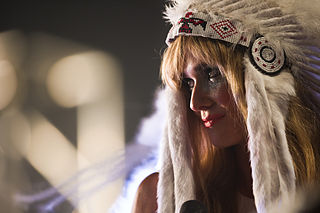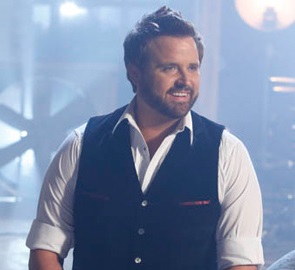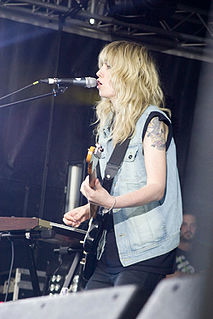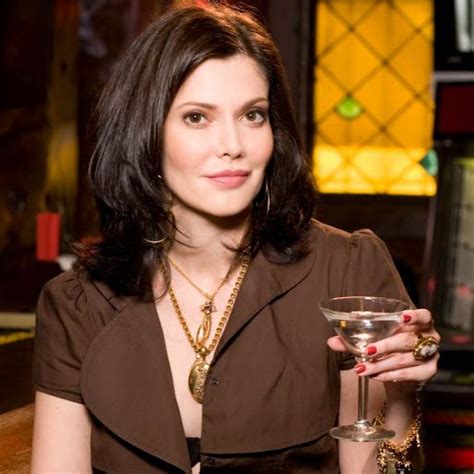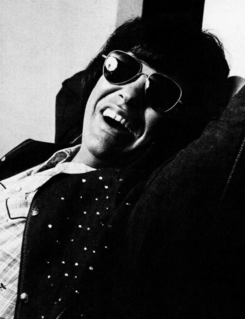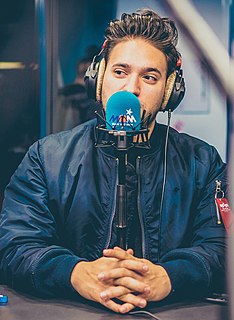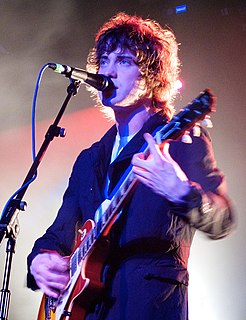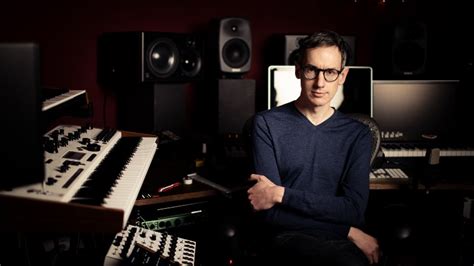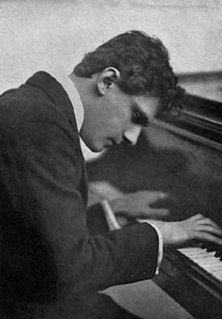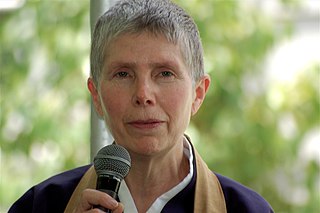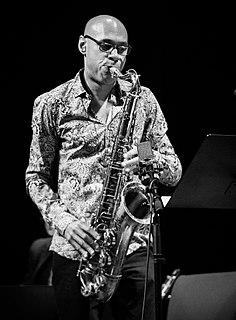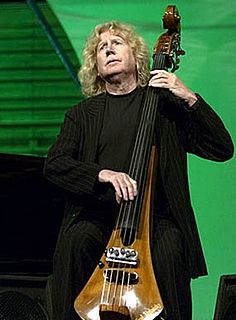A Quote by Oh Land
I have learned that collaboration are everything to me. Music is a social thing. If there are no ears to hear it, it has no value. I have really loved getting input from other great musicians- like recording strings with my family or making weird synth sounds with tore nissen.
Related Quotes
When you're listening to radio and hear the same 20 songs over and over and over, you want a break from it. Sometimes you don't want to hear something that sounds just like everything else on the radio. Eventually, if you hear the same sounds and the same musicians and the same mixes and all of that, it will start to sound like elevator music.
A lot of people ask me where music is going today. I think it's going in short phrases. If you listen, anybody with an ear can hear that. Music is always changing. It changes because of the times and the technology that's available, the material that things are made of, like plastic cars instead of steel. So when you hear an accident today it sounds different, not all the metal colliding like it was in the forties and fifties. Musicians pick up sounds and incorporate that into their playing, so the music that they make will be different.
When I listen to Airplanes record, it takes me back. I remember a lot of my thought processes when I was 20 or 21, writing those songs and recording that record. I wonder what I was thinking when I was trying to say a particular thing. I hear some of the weird little nuances in the recording; I can hear what the room sounded like. I remember what it smelled like. I can remember sitting up in guitarist Chris Walla's bedroom and for the first time in my life having this realization like, "Maybe I can do this. Maybe I can make music that in some capacity people will enjoy and come see me play."
The thing that amazes me about getting fired is that nobody ever has anything insightful to say about it. They always say the same thing. They always say, 'Everything happens for a reason.' As lame as that sounds, I guess it’s better to hear it out loud. Because when you hear it in your own head, it sounds like, 'Anything can happen with a razor.
I think you can hear, when you listen to someone's music, whether or not they're enjoying making it - it's so great to hear music where you can tell the person making it was just having a blast. That's really important to me as far as my process goes. That's probably why my music ends up being so poppy!
I definitely see the voice as an instrument: It makes great drums, great synth pads, great everything. Vocals can be so many things, like, "Hey, I'm Michael Jackson, and this is my iconic voice," or a choir of people sounding like Mozart's Requiem. Mariah Carey is my favorite singer because her voice sounds utterly groundless. It's not even a human voice; it almost sounds mechanical.
In general, the musicians we met that made the most sense just said to do what feels right and try not worry about what other people think. I know that sounds stupid and simple. I feel like Neil Young has done that and he's still making albums. He's one of the people I really look up to as someone who has kind of stuck to their guns their whole career. Just making music for music.
I'm not very good at sounding like other people. When you're going through your 20's and trying to get a break and that kind of thing, and you're trying to do something that sounds like film music, your idea of what it would be, it never really worked out for me and it's only really when I learned to trust the fact that I could only really sound like me.
What I've learned from my gurus is that when you hear music, you hear a person, or you hear people, and you hear everything about them in those moments. They reveal themselves in ways that cannot be revealed any other way, and it contains historical truths because of that. To me, that is the most important thing. It shouldn't be a footnote, or the last chapter. It should be the complete thesis about a book on listening.
Several times a day, stop and just listen. Open your hearing 360 degrees, as if your ears were giant radar dishes. Listen to the obvious sounds, and the subtle sounds?in your body, in the room, in the building, and outside. Listen as if you had just landed from a foreign planet and didn?t know what was making these sounds. See if you can hear all sounds as music being played just for you. Even in what is called silence there is sound. To hear such subtle sound, the mind must be very quiet.
